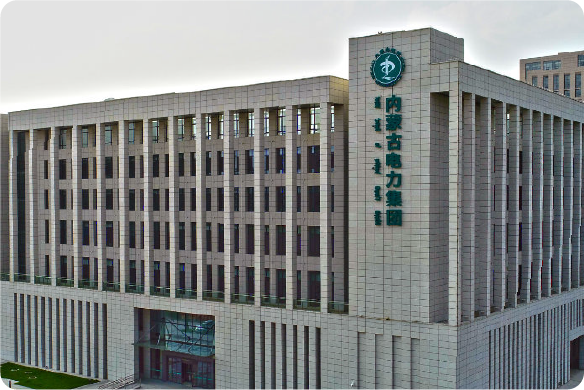案例详情
Case Details


Inner Mongolia Power Company | Open a New Era of "One Person, One Machine"
Inner Mongolia Power Company is the only independent provincial-level management power grid enterprise in China, with 36 subsidiary units and a total staff of 36,000. Covering an area of 720,000 square kilometers, it is responsible for supplying power to agricultural, industrial, and pastoral production in eight cities, as well as providing electricity for over 14 million urban and rural residents.

Project Background
Currently, the power industry is evolving towards a more intelligent and efficient direction. Not only frontline departments such as power generation, transmission, distribution, and operation need to strengthen the construction of smart grids, but also functional departments such as finance, human resources, and public relations need to establish integrated work platforms. With products like Infodator iBotX digital employees, iDiscover process mining, and low-code solutions, a new generation of digital infrastructure for power management has been developed. This initiative has not only completed the automation transformation of over fifty scenarios in more than ten departments within the group but also effectively promoted the "one person, one machine" strategy. Training drills have been conducted at the group headquarters and various municipal branch offices, with thousands of employees obtaining automation skills certification. The establishment of a super-automated application system meets the core demands of the group in the context of power transformation and development, unleashing tremendous productivity from top to bottom.
Project Description
Accelerating Digital Transformation with HAP
Infodator HAP integrates core technologies such as RPA, process mining, and low-code capabilities, providing an end-to-end operating system for lifecycle management within the power group. In the demand exploration phase, it assists the power group in establishing frameworks, determining organizational structures and implementation methods, and identifies automation needs through iDiscover process mining to locate process bottlenecks and loopholes. During the process design and scenario automation phase, iBotX digital employees undertake automated transformations across three levels: process planning, automation execution, and robot monitoring. For example, in the scenario of handling fault tickets, iBotX automatically logs in, refreshes the pending tasks interface regularly, sends alerts to on-duty personnel via sound and pop-up windows, intelligently recognizes keywords for sorting, and automatically forwards the tickets to the respective unit if no one claims them within the specified timeframe. This solution, pioneered by the group, fundamentally resolves the issue of ticket delays caused by frequent system migrations.
Implementing the "One Person, One Machine" Strategy to Unleash Long-tail Value
To promote the "One Person, One Machine" strategy, Infodator has established a comprehensive training system and subsequent support. Through on-site demonstrations, a "one person, one machine" software platform, quick guides, and Infodator Academy, various avenues are utilized to fully meet the needs of customer talent cultivation and employee digital skill development. In this collaboration, Infodator has conducted numerous training sessions for hundreds of employees at the power group's headquarters and various municipal branch offices. Moreover, the group has made proficiency in RPA skills a key performance indicator, urging employees to acquire independent design capabilities to ensure the smooth operation and evolution of the group's digital systems. Through training, each branch of the power group has independently incubated an average of 40 automated scenarios, continuously updating and stabilizing operations, thereby embodying long-term digital management innovation practices.
Project Results
In just a month and a half of close collaboration, both parties have successfully delivered projects for the group's headquarters and five municipal power supply bureaus. Leveraging the Hyper automation platform has enhanced the overall digitalization level of business operations, while implementing the "One Person, One Machine" strategy has facilitated the transformation of individual work patterns. This comprehensive approach strengthens the governance level of the group, explores solutions to the challenges of "dual highs" and "dual peaks" in the power system, and sets a practical and replicable example for digital demonstration construction in China. By improving operational efficiency and security in the industry, it further promotes the realization of a clean, efficient, and sustainable energy future, supporting the operation and innovative development of various industries such as manufacturing and services.
